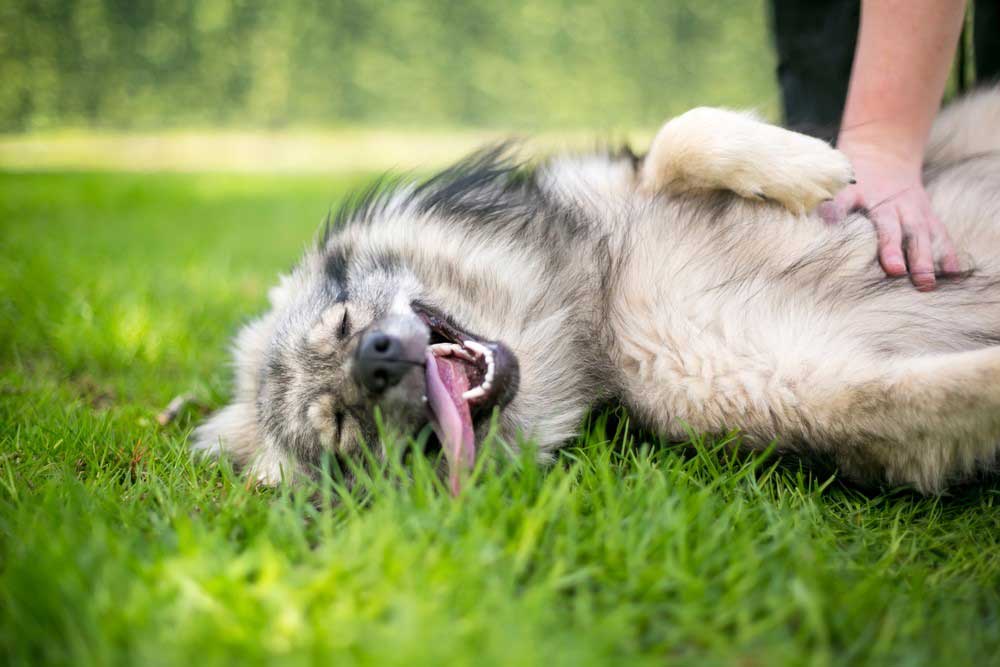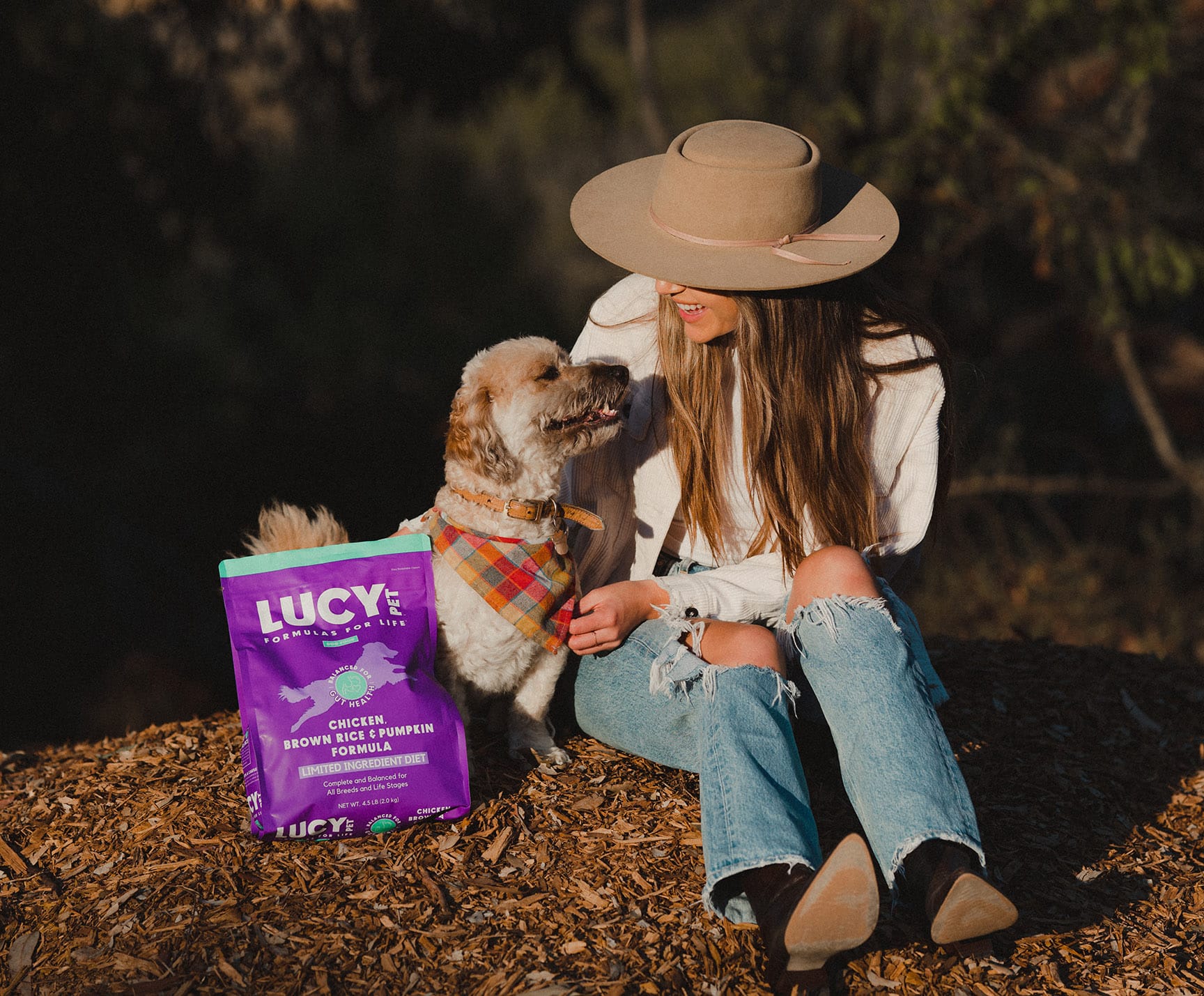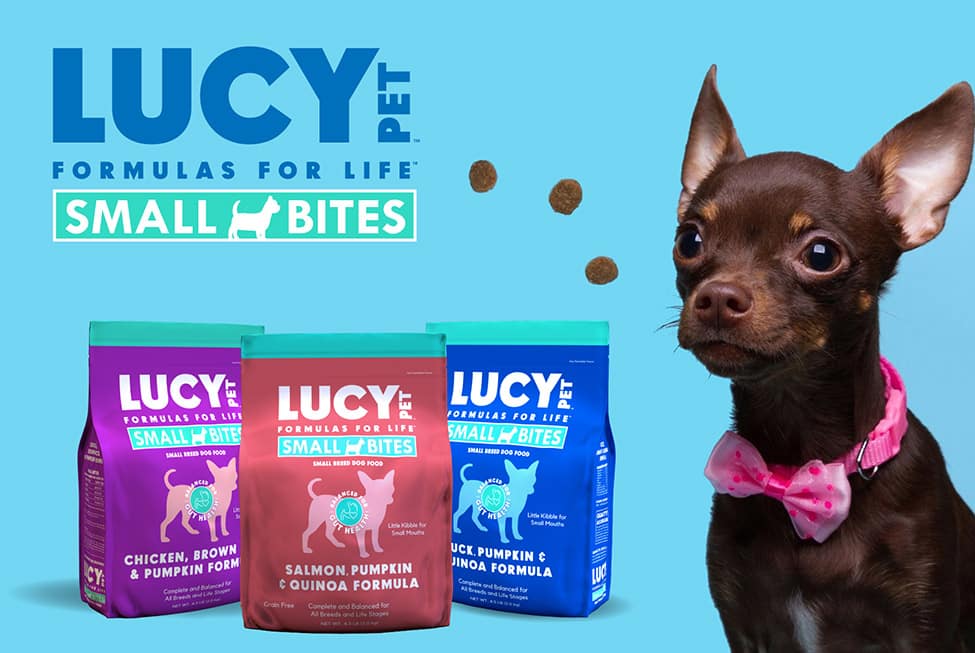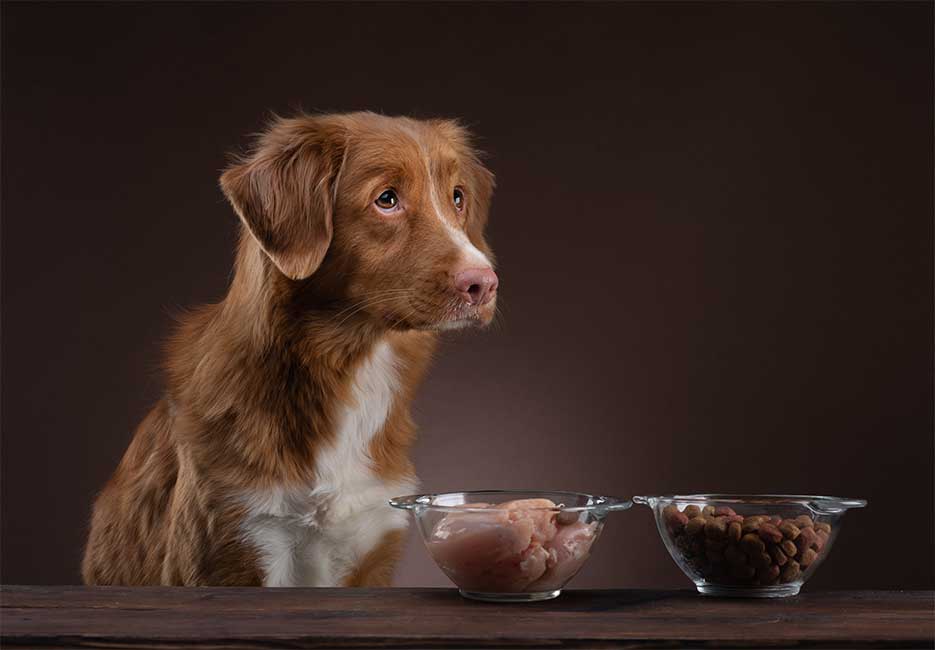
Causes of Diarrhea in Dogs
Dogs are known to eat just about anything. Whether it’s a strange bug that crawled through the vents or some little treasures found in the cat’s litter box, dogs will see it as a Michelin star meal. Your dog’s curiosity can sometimes get them into trouble.
Even though some dogs will eat some questionable or even gross things, that doesn’t mean they can digest all those things. Just because something can be ingested, does not mean it can be broken down in the digestive tract, and this can end up triggering a stomachache, or worse. Unfortunately, our furry friends can’t tell the difference between healthy and unhealthy, and they end up eating things that cause discomfort or even hurt them in the long run. If your dog is experiencing diarrhea for a short time, do not worry. This is a common symptom that inflicts all dogs at some point of their lives.
Diarrhea in dogs can be caused by many things, such as eating spoiled food from the garbage, ingesting something while outside, a parasite, bacteria, a food intolerance, or eating some type of human food not intended for dogs. In minor cases, all they will need is a few days eating bland diet, lots of water, or perhaps a change to a new diet of wholesome and nutritious dog food to be as good as new. If symptoms persist more than a day or two, you may want to take them to the vet for further examination.
Watch for drastic changes in your dog’s behavior. It is normal for a dog to refuse to eat or sleep more while they are experiencing digestive upset. However, if your dog is extremely lethargic, difficulty standing or walking, dull vital signs, or refusal to drink water, you should immediately contact your veterinarian. Your vet may require a recent stool sample, so be prepared to collect a fresh sample for analysis.
This article is intended to be a guide on the causes, signs, and treatment of diarrhea in dogs so you can be a more informed owner for your furry companion.
Understanding the Digestive Tract
To figure out what is causing your canine to have diarrhea, it’s important to understand a dog’s digestive system and the three stages of digestion.
Stage 1: Ingestion
The teeth, tongue, saliva, and esophagus all play a role in the ingestion phase. Teeth tear and break up food into smaller chunks that are easily digestible, and saliva coats the food to make it easier to swallow. Unlike in humans where saliva starts to break down food, dogs’ digestion begins in the stomach. This is why they scarf down their meals without taking a breath. Since kibble is already broken down into small chunks, they don’t really have to chew.
Stage 2: Digestion and Absorption
There are three major players in the role of digesting and absorbing food.
- Stomach – Food travels down the esophagus into the stomach where stomach acid, enzymes, and mucus all work to break down compounds into their constituent parts. Once this is ready to be absorbed, it has to pass through the pyloric sphincter in order to enter the small intestine.
- Pyloric Sphincter – The pyloric sphincter acts as a valve that controls the flow of food past the stomach. If the food eaten is unable to be digested, and the dog’s body recognizes it as poisonous, the pyloric sphincter will remain closed and the dog will throw up the food before it reaches the small intestine. If the food can be digested but isn’t healthy for the dog, it will pass through the pyloric sphincter and result in diarrhea.
- Small Intestine – Here is where most of the absorption process takes place. Though considered the “small” intestine, it is the largest organ in the body. To give you a picture, a medium-sized dog will have a small intestine with the surface area of a typical living room floor.
- Other organs involved – The liver, kidney, and gallbladder also aid the flow of digestion by regulating blood hormone levels and producing bile (the natural chemical that gives feces its color).
Stage 3: Elimination
Once the chyme (mixture of gastric juices and digested food) passes into the large intestine, water and nutrients are absorbed before being eliminated from the body. If during the absorption phase the small intestine was irritated for any reason, this will result in the chyme passing quickly through the system and eliminating as diarrhea.
Often the discoloration of diarrhea is due to this quick release. There isn’t enough time to absorb the necessary nutrients and water, and the bile didn’t have a chance to coat the chyme.
Four Primary Causes
While diet and digestion are important factors that lead to the majority of diarrhea cases, it’s not the only factor. In fact, there are four different causes of diarrhea in dogs. Those causes include:
- Change in diet
- Infectious disease and parasites
- Scavenging
- Stress
Each one has a different set of symptoms that you can look out for and a different treatment method. Always visit with a veterinarian before you start unorthodox “home” treatments.
Change in Diet
Making a change in your dog’s diet can cause a bout of diarrhea if done incorrectly. Switching to a new food source, regardless of how similar or healthy the switch may be, can cause your dog to vomit or have diarrhea if you make a hard switch overnight. That’s why it’s crucial to change your dog’s diet gradually over a period of time.
Most dieticians recommend mixing an additional 10-20% of new food into the diet each day. To avoid diarrhea in dogs, diet changes should happen over the course of a week, or for especially sensitive stomachs, a month.
You might be wondering why change your dog’s diet at all? There are times in a dog’s life where a change may be necessary.
- New Adoption or Puppy– Whether you adopt a dog from a shelter or get a new puppy, it is important to give them the very best nutrition. Shelter pets often endured a stressful environment, and may be undernourished. Start them off with a quality diet to help them build and repair muscles, and feed their gut to strengthen their immune system. For puppies, during the first twelve to eighteen months their brains are developing, muscles are strengthening, and bones are expanding. To sustain this, puppies need the best possible quality nutrients to support their development.
- Older, “senior citizen” dogs – Throughout your dog’s life it is important to feed a high quality diet. However if you previously fed one of those grocery store brands, and now you are more informed of better options, what better time to help your older dog become stronger as they age. Common health issues in senior dogs can include skin issues, vision problems, brain function deterioration, joint pain, and a weakened immune system. Feeding a high quality food that improves gut health can go a long way for healthy aging. Your dog’s gut is the to a strong immune system to help fight disease. Senior dogs in particular can benefit from a healthy gut and a robust immune system.
- Chronic diarrhea or vomiting – If your dog is experiencing chronic upset stomachs, it might be time to change their diet. New dietary restrictions can happen at any point in a dog’s life, which means despite feeding them the same thing for years, there could still be an issue with their food. If you assume that your dog is suffering from canine inflammatory bowel disease or has a food intolerance, it may be time to make a switch to their diet. Diets with a variety of quality, healthy fibers will help improve their digestive system. Look for foods with pumpkin as well, which is known for helping to improve digestion.
Foods That Don’t Agree With Dogs
There are certain “human” food items that can be toxic or send your dog into a diarrhea frenzy. Many people make the mistake of thinking dogs can eat anything that a person can, but this is not true. Of course your dog may want to eat these but that does not mean they should, or that it wouldn’t be unsafe for them. Some common foods that should never be fed to your dog include:
- Fatty meats like bacon
- Garlic and onions
- Dairy products (especially ones that are sweetened)
- Raw meat
- Sugary foods
- Grapes and raisins
- Chocolate, coffee, caffeine
- Alcohol
Superfoods for Dogs
What are Superfoods and are they safe for dogs? Well there are plenty of “superfoods” that are helpful to a dog’s digestion. Those superfoods include pumpkin, salmon, quinoa, and sweet potatoes. Pumpkin is rich in fiber and water-content and clears the digestive tract for dogs. Salmon provides healthy omega-3 fatty acids for a shiny, supple coat. Quinoa is high quality, digestible seed rich in protein, containing essential amino acids. And sweet potatoes are dense in vitamin A and C, which help boost the heart and immune system. Look for pet foods that contain these types of ingredients to aid their digestion and promote good gut health.
Diarrhea in Dogs What to Feed Them?
If your dog is experiencing diarrhea, their stomach is going to be extra sensitive for a while. The first step is to limit the diarrhea. Determining the cause can be difficult, so it is very important to observe their behavior to look for signs of more serious condition. Usually diarrhea can be managed by feeding your dog a bland diet of boiled chicken and plain rice or plain quinoa for a day or two. You can also mix in a few tablespoons of plain, canned pumpkin (not the pie filling version). Always be sure your dog has access to fresh, clean water. You may notice that your dog will not want to eat for a day when their tummy is upset. Usually diarrhea will begin to clear up in a day or two, but they will still have soft poop. Gradually transition them back to their kibble, and mix in a small amount of the pumpkin or small amount of rice to help bind their stool. This would also be a good opportunity to check the brand of food you are feeding normally. Check the label…does it contain superfoods like pumpkin, quinoa, or sweet potatoes? Does it feature a healthy blend of quality fiber sources to support digestive health? Look for a food that has gut health as a benefit. This will help your dog maintain a healthier digestive tract overtime.
Lucy Pet food, for example, focuses entirely on Gut Health. Their duck and potato limited ingredients formula for dogs and chicken, brown rice and pumpkin limited ingredient diet formulas are ideal for dogs with food sensitivities. They also offer other formulas such as salmon, pumpkin and quinoa packed with superfoods and healthy fibers.
Infectious Diseases and Parasites
Sometimes diarrhea is a symptom of a more serious, severe condition; for example your dog might be suffering from an infection or parasite. These can only be treated by the care of a veterinarian and will require a stool sample or possibly blood test.
- Bacterial Infection – The most common form of bacterial infection in dogs is known as leptospirosis. This infection typically comes from drinking stagnant water contaminated with these bacteria. If your dog is experiencing diarrhea and other symptoms like lethargy, fever, and vomiting, be sure to take your dog to the vet immediately.
- Viral Infections – Most viral infections can be ruled out by vaccinating your dog at a young age. Otherwise, the canine parvovirus (or CPV) is a common virus in puppies aged six weeks to six months. This infection can be found in the intestines of dogs and can cause vomiting, diarrhea, and weight loss.
- Parasites – A particularly nasty affliction for dogs, parasites can live inside their intestines. These parasitic creatures from worms to protozoa feed off the intestinal walls causing malnutrition, weight loss, lack of appetite, and more. They can be transmitted to dogs through digestion or in utero. These can be picked up by drinking from a common water bowl at a dog park, or for example if they stepped in another dog’s poop that was carrying parasites.
Scavenging
Buried deep within dogs DNA is the urge to scavenge. While it’s great that dogs can keep themselves occupied for hours at a time, it can lead them to trouble when they find something remotely edible. This includes getting into the garbage, eating rotten fruit, old buried bones, or discovering dead birds or small animals in the yard.
Raw meat when left unrefrigerated, or especially in the case of a deceased small critter in the corner of your backyard, is riddled with bacteria and parasites. It is best to keep your dog away from these sources, no matter how much it may be of interest to them.
Stress
Although we think of stress as a uniquely human trait, dogs are not immune to their own forms of stress. Changing routines, moving, family stress, new pets, or leaving your dog for extended periods of time can be stressful for our furry companions. If your dog is experiencing diarrhea due to stress, they may also be exhibiting other symptoms as well.
- Decreased appetite – Dogs that are stressed will not have much interest in food, or they will stop eating almost as soon as they start. This is distinctly different from their usual enthusiastic behavior when their food bowl is brought out.
- Increased sleeping – While dogs are known to take more naps than us throughout the day, you can probably tell when a dog is sleeping too much. Be observant about your dog’s normal behavior so you can recognize when something is unusual.
- Mood swings – If your dog is typically calm but has recently been acting out—chewing on shoes, growling, etc.—this could also be a sign of stress.
- Isolation – Dogs are pack animals and prefer to be around their owners most of the time. Some alone time is normal, but if a dog is continuously avoiding you, it could be because they are stressed out. For example, if your dog doesn’t usually hide in the bathroom, or in a closet, but you see them disappear all of a sudden, this is an example of isolation due to stress.
Diarrhea in Dogs What to Do
Most cases of diarrhea caused by digestive issues will fix themselves within a day or two. However, if your dog is experiencing diarrhea beyond 48 hours, be sure to take them to the vet. Because of the wide range of possible causes, it’s important to be proactive and get your dog the professional medical attention they need. If your dog has an underlying illness, they may need veterinary care in order to get better.
Also, be aware that diarrhea in dogs causes dehydration and malnutrition. Encouraging your dog to eat is important, but remember that your dog may not want to eat much while their tummy is upset. It is very important that they have access to clean, fresh water so they do not dehydrate while they have diarrhea. When your pet is sick, be sure to thoroughly clean food and water bowls more often, to ensure there is no foreign bacteria present.
What Else Your Dog’s Poop Can Tell You
Since dogs refuse to learn human language, we are forced to diagnose them based on key symptoms that we can identify. One of the most significant ways pet owners and veterinarians can diagnose dogs is through their feces. There’s a lot a dog’s poop can tell you about their digestive tract. Here are five different aspects to your dog’s poop that can help identify their health.
- Color – A healthy poop should be the color of chocolate. Any abnormal colors should be traced back to their diet. Food colorings and artificial colors will often come through your dog’s feces.
- Content – The extra bits in dogs’ feces can clue you in to certain warnings. If there are white spots, that could be indicative of worms in your dog’s digestive tract. If they have bloody diarrhea this could be an infection or a more serious condition or simply they could have cuts on their anus. A clear, mucus like substance with the stool could indicate something as basic as colitis, or indicate a parasite like giardia. If you see mucus paired with diarrhea be sure to collect a sample and bring it to the vet the same day to be tested.
- Shape – If your dog is dehydrated, the shape of their poop might be circular droppings. Healthy poop, on the other hand, looks like log segments.
- Consistency – The consistency should be that of Play-Doh. If it’s hard and compact, this may indicate that your dog is dehydrated or suffering from canine constipation. Wet and formless means that your dog is suffering from one of the causes discussed above. A diet with a healthy blend of fiber will ensure that your dog’s stool is being passed through the digestive tract and easily excreted.
Start with a Healthy Diet
When your dog has experienced diarrhea or an upset stomach, the first determining factor should be to look at their diet. Diet plays a significant role in preventative care, creating a healthy gut biome, and the energy levels of your dog.
If you’re looking for the right kibble to offer your furry friend, consider Lucy Pet dog foods. They are precisely formulated to have all the nutrients a dog needs to live a long and happy life. Their pet formulas target the gut, heart, eyes, muscles, and coat, while also providing the antioxidants for a robust immune system and plenty of energy. Lucy Pet Formulas for Life(™) are developed by a team of highly experienced nutrition experts so you can be confident in the quality and science behind their foods.
Sources:
Pet MD. Dog Saliva: 5 Fast Facts You Should Know. https://www.petmd.com/dog/general-health/dog-saliva-5-fast-facts-you-should-know
Pet Health Network. Intestinal Parasites in Dogs. http://www.pethealthnetwork.com/dog-health/dog-diseases-conditions-a-z/intestinal-parasites-dogs
Live Science. Ancient Wolf DNA Could Solve Dog Origin Mystery. https://www.livescience.com/50928-wolf-genome-dog-ancient-ancestor.html
Inflammatory Bowel Disease in Dogs: https://www.lucypetproducts.com/inflammatory-bowel-disease-in-dogs
Signs and Symptoms of Constipation in Dogs: https://www.lucypetproducts.com/signs-and-symptoms-of-constipation-in-dogs





Leave A Comment
You must be logged in to post a comment.